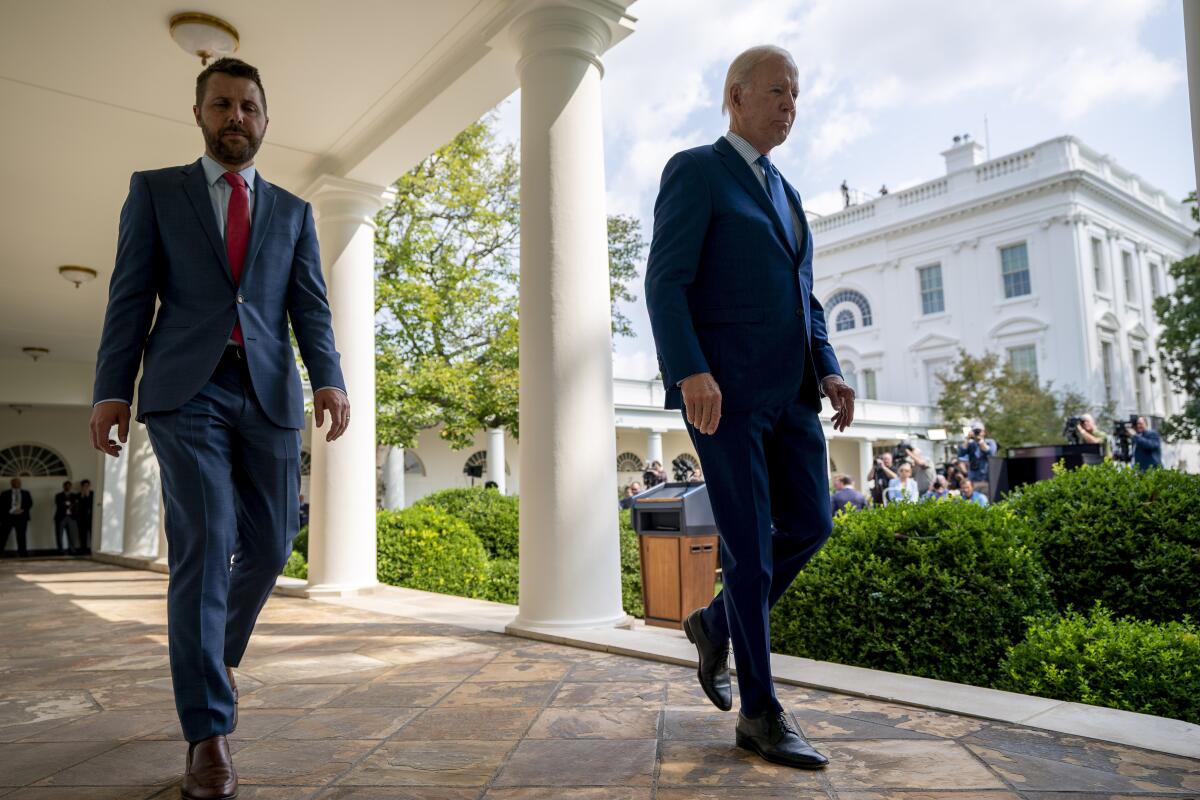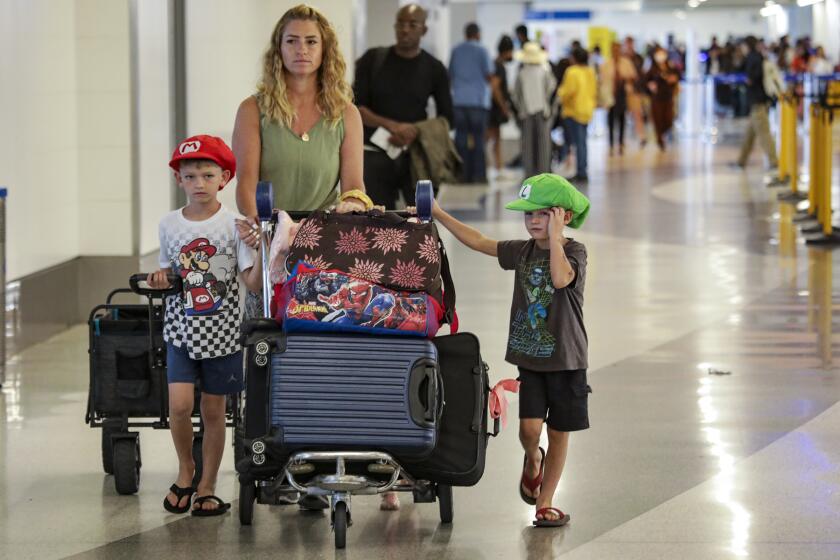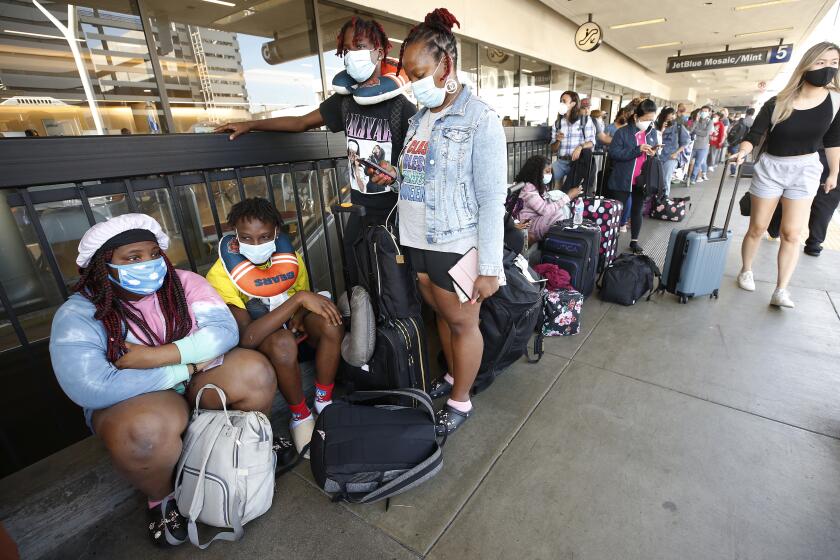New rule would show ‘true cost’ of plane tickets, White House says

- Share via
WASHINGTON — President Biden announced a new initiative Monday that would eventually allow consumers to see a more complete price on airline tickets — including baggage and change fees — before they buy, as the White House continues to search for ways to lower costs for Americans amid persistently high inflation.
The White House said the proposed rule from the Transportation Department would prevent airlines from hiding the “true cost” of airline tickets, which would help consumers save money upfront and encourage more competition among airlines to offer better fares. The requirement would apply not only to airlines directly but also to third-party search sites such as Kayak and Expedia.
“You should know the full cost of your ticket right when you’re comparison shopping,” Biden said Monday, citing fees charged by airlines to check luggage or to seat families together. The new rule, the president said, would help consumers “pick the ticket that actually is the best deal for you.”
Airlines made nearly $5.3 billion in baggage fees and nearly $700 million on cancellation and change fees last year, according to Transportation Department figures. Airlines charge a variety of other fees for extra legroom and other perks that are not tracked by the government.
A trade group for the largest U.S. airlines said carriers already disclose terms and the total cost of a ticket.
“This includes transparency regarding taxes and government fees on airline tickets, which account for more than 20% of many domestic one-stop, round-trip tickets,” said Katherine Estep, a spokeswoman for Airlines for America.
Jet fuel prices have been dropping dramatically since May, yet airfares for Thanksgiving and Christmas will be the highest in years.
The proposed rule seeks to target a typical situation faced by consumers in which a ticket price is listed on an airline or search website, but with information often listed elsewhere about any additional airline fees, such as for checking or carrying on a bag, being guaranteed a seat next to your child or changing or canceling a flight — fees that vary widely by airline and could quickly tack on hundreds of dollars to the price of a ticket after the initial purchase. Under the proposal, that information would be made available upfront when the quoted airfare is first displayed.
The fare information would be required for all commercial flights to, from or within the United States.
The proposal dates to the Obama administration and was scrapped in 2017 by President Trump after airlines complained that it was unnecessary and would add significant costs. It must now go through a 60-day comment period before final approval.
The proposed rule comes as tension grows between the Biden administration and the airlines, with each blaming the other for an increase in canceled and delayed flights this summer.
The Transportation Department also began posting information to help consumers learn what each airline provides when flights are canceled or delayed for reasons within the airline’s control. That prompted several airlines to update policies around finding a new flight and covering hotel and meal expenses for stranded travelers.
Biden made the announcement Monday afternoon at a meeting of the White House Competition Council, established last year as a way for his administration to find cost-saving measures for consumers. It was the third meeting of the group, chaired by National Economic Council Director Brian Deese.
“Capitalism without competition isn’t capitalism,” Biden said at the event, held in the State Dining Room at the White House. “It’s exploitation.”
At the meeting, Biden also pushed other federal agencies to take similar cost-saving actions, particularly by increasing transparency on hidden fees that can balloon the true cost of goods and services.
When an airline cancels or delays your flight, what does it owe you? Passenger rights advocates have dozens of ideas for federal regulators to impose on airlines in response to the growing anger among travelers.
One example is a proposal from the Federal Communications Commission that would require internet service providers to better outline fees and charges on what the administration calls a “broadband nutrition label.”
The administration has taken similar actions when it comes to bank and credit card fees, which the White House says have saved consumers $3 billion annually compared with before the COVID-19 pandemic.
More to Read
Inside the business of entertainment
The Wide Shot brings you news, analysis and insights on everything from streaming wars to production — and what it all means for the future.
You may occasionally receive promotional content from the Los Angeles Times.












